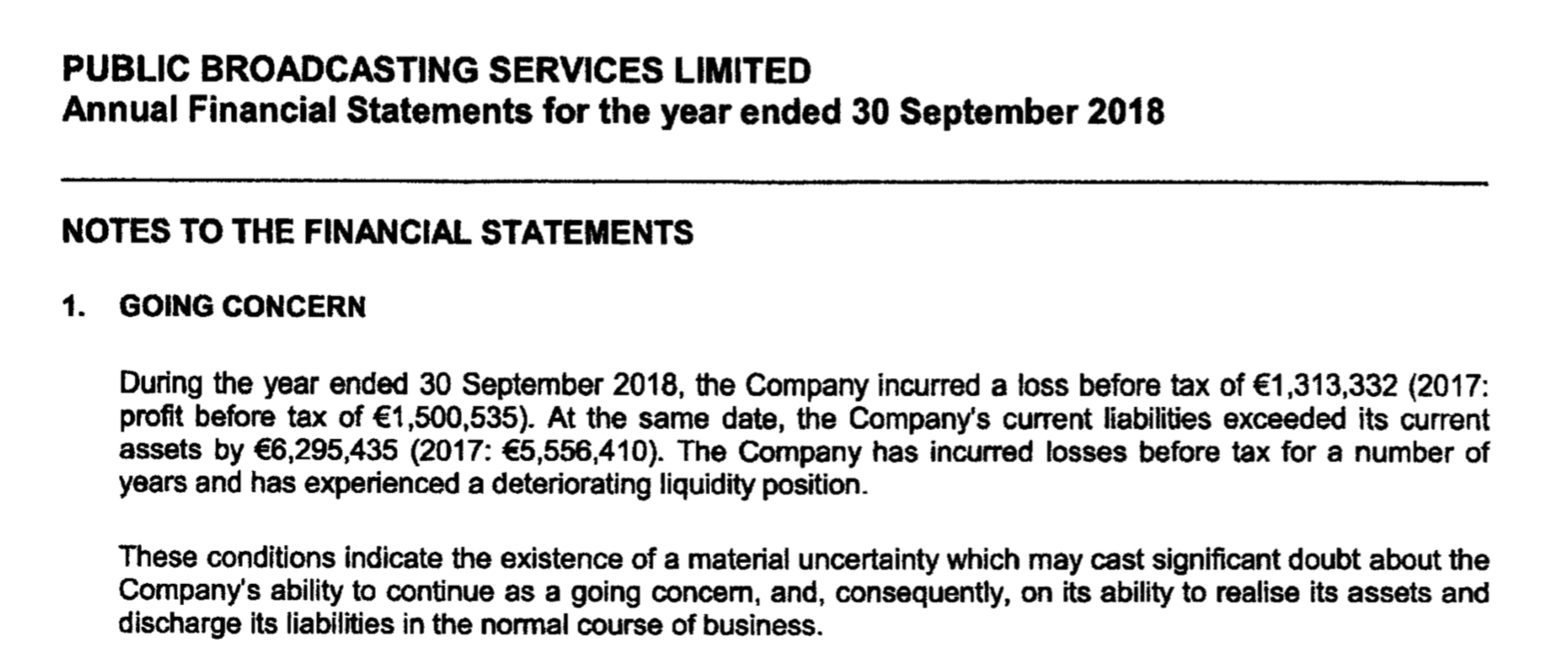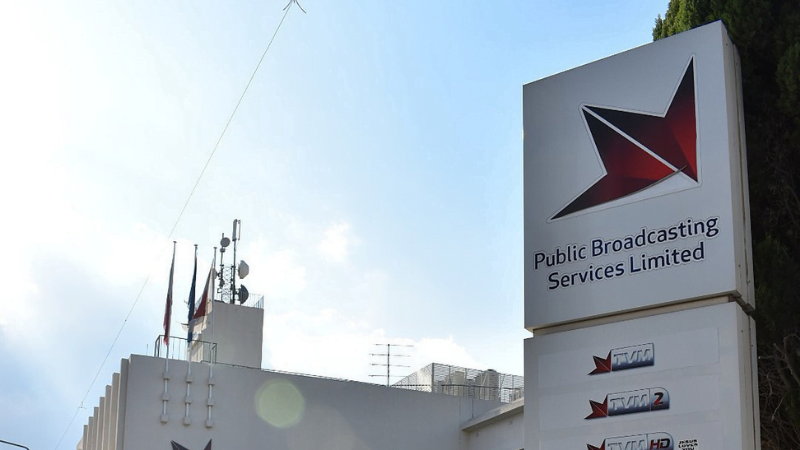Taxpayers will shore up PBS, the public broadcaster, with a financial injection of at least €30 million over the next five years as the company has been driven to insolvency and is practically bankrupt, The Shift can reveal.
The company’s most recent published accounts – for the year ending September 2019 – show the public broadcaster is riddled with debt and its liabilities exceed its assets by €6 million. Without the direct intervention of the government the company will have to fold.
The situation is so dire that auditors RSM concluded they could not guarantee the company will continue as a going concern.
To remedy the situation and make sure Television Malta and its national radio services continue operations, the government has now signed a €30 million deal with the public broadcaster, increasing its direct annual State contribution to €6 million a year for the next five years.
This may still not be enough if PBS does not implement a severe cost-cutting exercise, including the cost of local productions it commissions from various private companies, many of which are close to the Labour government.
A case in point was recently mentioned in court when Keith Schembri, the former Chief of Staff of disgraced Prime Minister Joseph Muscat, revealed how Saviour Balzan of Media Today pressured him to get programmes paid by taxpayers on TVM.
“There were people who would come to my office and lobby for a programme on TVM,” he said. They would go to his office and “demand things…Lobbying shouldn’t come from a journalist,” Schembri told the court.
Balzan is receiving some €200,000 a year from State coffers. Former CEO John Bundy said in court that Balzan’s programmes ‘could not be touched’ during his time at the helm of PBS, even though they had low audience ratings and were a financial burden for the public broadcaster.
Heavy losses despite millions in State funding
The latest PBS accounts show heavy losses despite the company receiving almost half of its income directly from the government.
The accounts show that apart from a €4.1 million subsidy given to PBS each year, the public broadcaster also received numerous other direct government grants for a range of ‘initiatives’ including Malta’s EU Presidency or the hosting of the Junior Eurovision.
PBS also received millions in other government revenue, including €2.4 million in advertising from the government and its entities.
Despite these capital injections, PBS was driven to financial ruin.
The accounts show that the company has accumulated multi-million loans from banks to refurbish its operations centre in Guardamangia and purchase technical equipment.
“The company’s liabilities exceed its assets by €5.9 million,” the auditors noted.
While refusing to give any guarantee about the company’s future, the auditors said that according to the directors, led by Tonio Portughese, the company was going to take a number of initiatives in order to shore up its finances.

These include the introduction of more commercially viable programmes and the phasing out of unpopular and loss-making programmes, a re-negotiation of the Public Service Obligation (State subsidies) which has now been concluded, and cost-cutting measures among its human resources.
Taxpayers funding propaganda
PBS currently employs 100 full timers and has a payroll of €4.1 million, or €41,000 per employee. These costs are well above the average in Malta.
Following the 2013 change in administration, PBS was flooded with new personnel, most employed directly from Labour’s TV station, ONE.
Both the station’s CEO Charles Dalli and its Head of News Norma Saliba are former employees of ONE TV.
Portughese was recently replaced by Carmen Sammut as Chair of PBS. Sammut, a University professor, used to work as a journalist at PBS under the previous Labour government. She also led the Labour Party’s think tank ‘Ideat‘.
Various international reports have raised concern about the public broadcaster’s failure to serve its public service obligations. The Media Pluralism Monitor report published last August draws attention to concerns about political influence on public broadcasting in Malta:
“PSM [Public Sector Media] is particularly vulnerable to political influence. The government has a significant and direct influence on the PSM, in view of the fact that members of its Board of Directors, as well as its Editorial Board, are appointed by the State.”
The Media Pluralism report issued a high risk score of 83%, under the category “Independence of PSM Governance and Funding”.














“PBS currently employs 100 full timers and has a payroll of €4.1 million, or €41,000 per employee. These costs are well above the average in Malta.”
Obviously the 41,000 E is an average not what each employee actually gets. A few are more equal than the majority of workers
Kollox taghhom BISS.
Id-dejn jithallas mill-poplu.
PBS is Malta’s Waste of Money. Malta will be FAR BETTER if PBS is Dismsntled. It’s Malta National ‘Newscaster’ Disgrace -, Waste of Money.